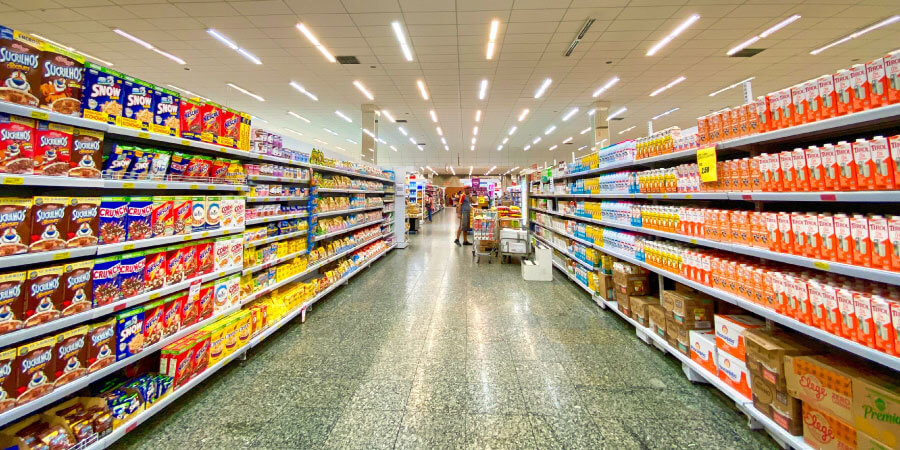Globally Banned Additives You'll Find in Your Grocery Bag

The Evolution and Impact of Food Additives
The journey of food additives goes from ancient preservation methods to today's sophisticated compounds. This evolution reflects our desire for safe, long-lasting, and appealing food. While science has made significant contributions, concerns about health and sustainability are growing. Understanding the history and regulations behind these additives helps us navigate the complexities of achieving a balance between convenience, safety, and nutrition.
Modern Dietary Trends and Food Additives
Today's dietary trends, with a focus on health and sustainability, influence the conversation around food additives. Consumers demand products that align with these values, prompting the food industry to explore natural alternatives for synthetic additives. The "clean label" movement pushes for transparency, encouraging manufacturers to minimize additives and innovate to meet consumer expectations without compromising safety or quality.
Global Harmonization and Food Safety
The varying regulations on food additives across countries highlight the need for global harmonization. Agreeing on safety standards and usage limits is crucial for protecting consumer health worldwide. Standardized food safety norms ensure all food products, regardless of origin, meet stringent safety criteria. International bodies play a vital role in this endeavor, aiming to create a unified framework.
Empowering Consumers Through Knowledge and Advocacy
Understanding how to read food labels empowers consumers to make informed choices aligned with their health preferences and values. Advocating for stricter regulations and supporting initiatives for transparency and sustainability in the food supply chain drives positive change. Engaging with local food systems fosters sustainable practices.
Leveraging Technology for Safer Food
Technological advancements in biotechnology, processing, and preservation offer alternatives that can reduce or eliminate the need for certain additives. Innovations in packaging and natural preservatives extend shelf life without compromising safety or nutrition. Lab-grown foods and plant-based alternatives present opportunities for a more sustainable food industry, potentially reducing reliance on additives.
The Future of Food: Sustainability and Health
The future of food production and safety will be shaped by consumer demand, regulations, and technology. We strive for a food system that prioritizes health, sustainability, and transparency, and the role of food additives will undoubtedly evolve. Continued research, consumer education, and advocacy will ensure that this evolution benefits both public health and the environment.
Navigating Specific Banned Additives:
While navigating the wider landscape of food additives, it's essential to be aware of specific examples banned in other countries but still lurking in some US products:
- Potassium Bromate: Linked to increased cancer risk, this flour additive is banned in several countries but still lurks in some US breads. Seek out naturally-made bread from local bakeries.
- BHA & BHT: These preservatives, associated with cancer and other health issues. Be cautious of them in cereals and processed foods.
- Artificial Colors: Links to behavioral issues in children, they're found in many snacks and sauces. Opt for natural alternatives like beet juice, paprika, and turmeric.
- Brominated Vegetable Oil (BVO): This stabilizer in some soft drinks has concerning health associations. Choose naturally flavored sparkling waters for a healthier option.
- rbGH & rbST: These growth hormones used in dairy production have been banned in several countries due to animal welfare and potential human health risks. Opt for organic and natural dairy products whenever possible.
By being informed about these specific additives and making conscious choices, you can minimize your exposure and contribute to a healthier food system for all.
Further Reading:
- History and Types of Food Additives: Britannica offers a comprehensive overview of food additives, their types, uses, and the historical context. It's a great resource to understand the evolution of additives from ancient preservation methods to modern synthetic compounds.
- Chemical History of Food: The Science Museum provides an intriguing look at the chemical history of food, discussing the role of chemistry in food production, storage, and consumption from antiquity to the present. This can support content on modern dietary trends and the use of chemicals in food.
- WHO on Food Additives: The World Health Organization offers detailed information on the safety, assessment, and regulation of food additives, which could reinforce points on global harmonization and consumer safety.
Conclusion: Navigating the Future Together
The dialogue on food additives is a microcosm of broader food system challenges, encompassing health, environmental, and ethical considerations. In this collective journey towards a safer and more sustainable food future, every stakeholder has a role to play. From informed consumers and responsive regulators to innovative food scientists and producers, the path forward requires collaboration, innovation, and a shared commitment to progress.
Please note that while this article provides valuable information on food additives and their implications for health and the environment, it is intended for informational purposes only. Readers are encouraged to conduct their own research and consult with health professionals or food safety experts for advice tailored to their specific circumstances. The rapidly evolving nature of food science and regulatory standards means that staying informed through reputable sources is crucial for making well-informed decisions about dietary choices and food safety.
Share This!